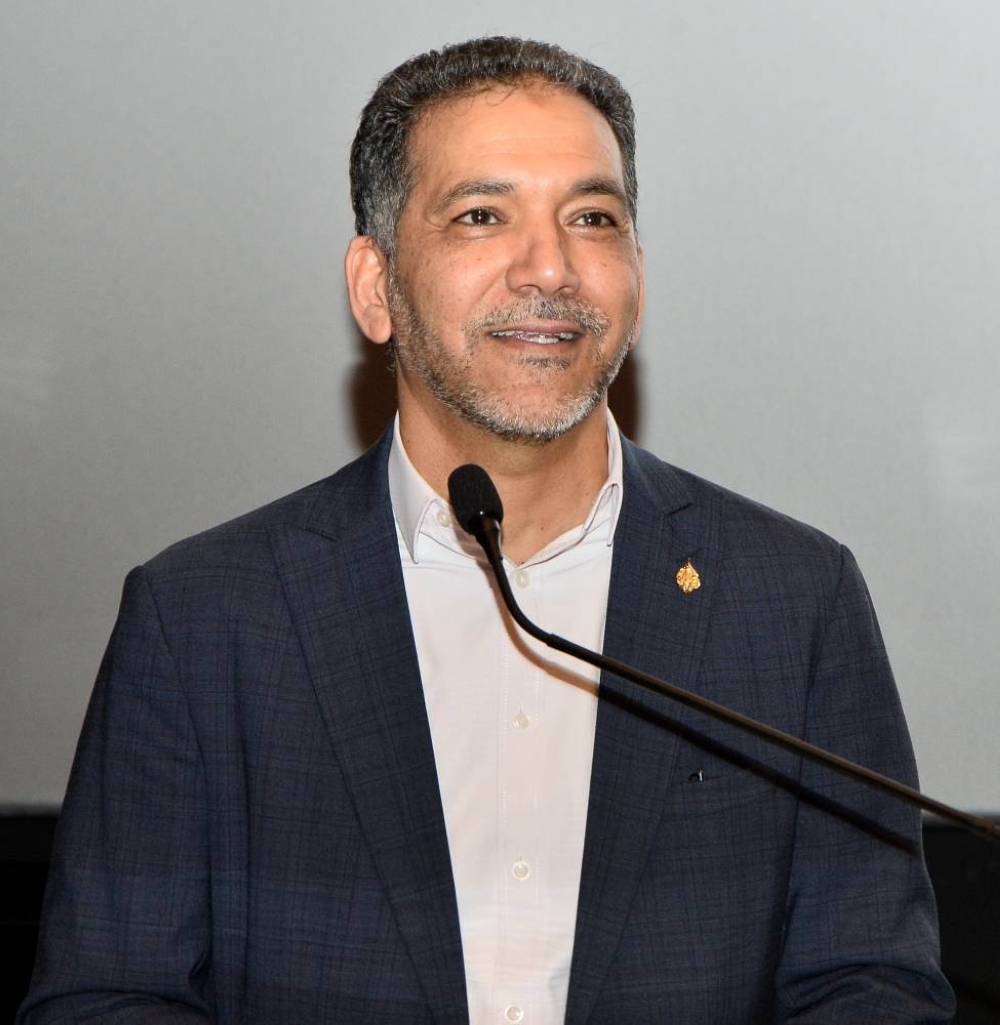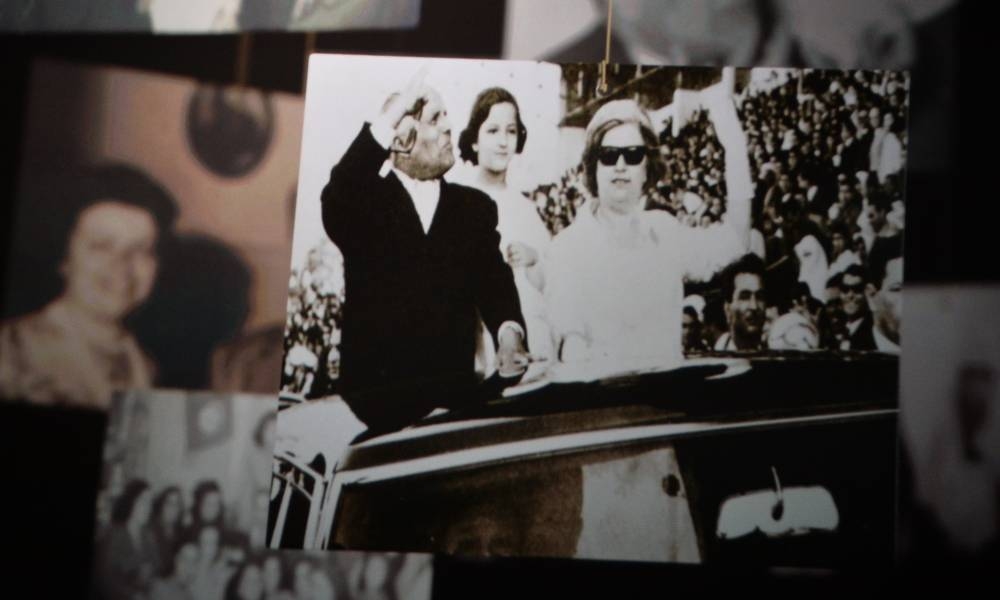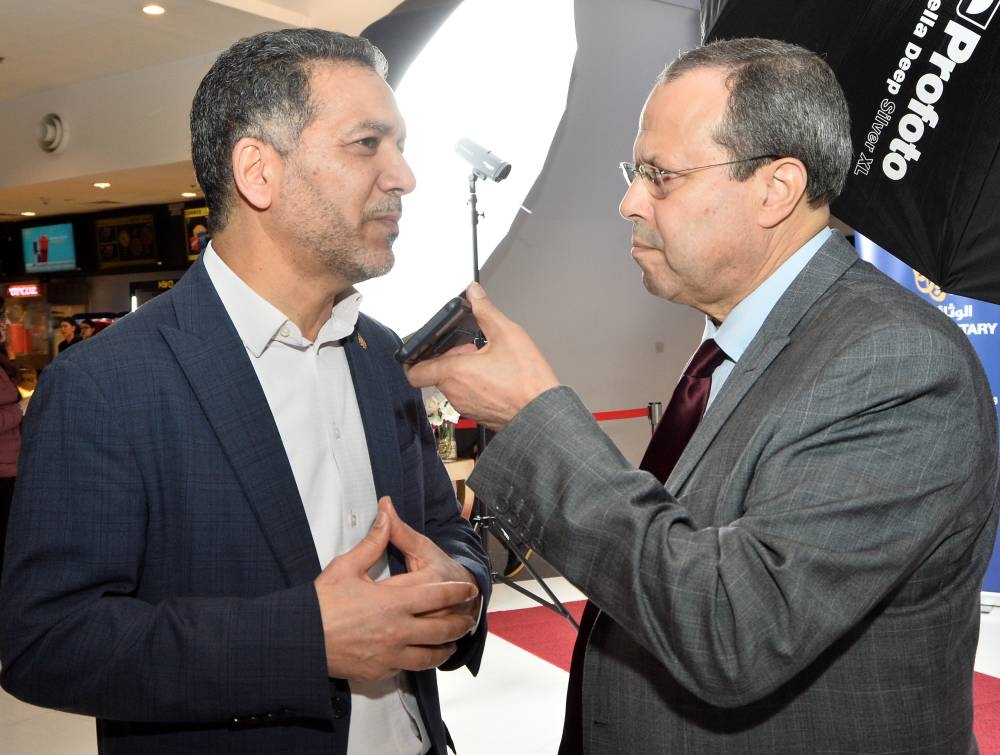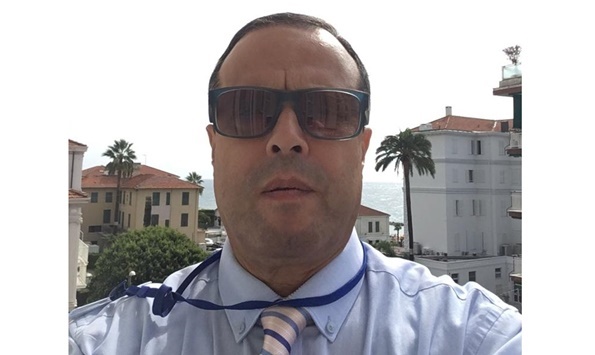The Novo Cinema Hall in the Pearl area in Doha has witnessed the first public screening of the documentary film “Bourguiba’s Women”, produced by Al Jazeera Documentary and directed by Jamel Dallali.
The screening was attended by a large audience, led by Mustafa Souag, Acting Director General of Al Jazeera Media Network, along with a number of media figures, in addition to a remarkable presence of the Tunisian community in Qatar.
In an exclusive statement to Gulf Times, Jamel Dallali said: “The idea started in 2019 and since then the research process began, which was a long and arduous process. The film wanted to raise, I would not say, a problem, but a controversial topic in Tunisia, the legacy of Habib Bourguiba regarding women. I wanted this film to be an objective testimony, based mainly on documents, and archives, about Bourguiba's relationship with women through three cases: his relationship with his mother, his relationship with his first wife Mathilde (French born who became Tunisian, and after the independence converted to Islam and took the name "Moufida" on 25 October 1958), and his relationship with his second wife Wassila.”
Dallali highlighted that “this film shows that Bourguiba's relationship with the topic of women is a dialectical relationship, and it is a complex relationship. It shows achievements that Bourguiba had a great influence on, but there are other achievements that Bourguiba, I would not say invested in, but built on. Considering that the topic of women in Tunisia has been raised since the mid-19th century and many books have been written on the topic of women's liberation. Perhaps the most important book is Tahar Haddad's book "Our Women in Sharia and Society."
Dallali added: “Also, Bourguiba's relationship with women through power is also a very important topic, which the documentary tried to highlight objectively and in a way that tries to rely as much as possible on documents and archives.”
Concerning the references used, Dallali said: “The most important reference was Bourguiba's speeches, as he gave a series of speeches to journalism and media students in 1973, so this was the basic material as it was the testimony of the concerned person himself. Also, a large group of books were written, from which we relied on 7 or 8 sources. There was also a very large archive of photos and videos as well as some documents, whether in newspapers or in correspondence from the US State Department or others, whose subject was generally about Bourguiba's relationship with women. There were photos that could be considered personal documents, as they were photos from Habib Bourguiba's personal photographer, and we were able to obtain a number of them, some of which appeared for the first time, as we obtained them from the personal photographer accompanying Bourguiba.”
In his interview with the “Documentary” website, director Jamal Dallali said that the reactions to the film were positive. Especially after the controversy that its title sparked before its screening to the public. He added that work is underway to schedule cinema screenings in Tunisia before it is shown soon on Al Jazeera Documentary.
Ahmed Mahfouz, Director of Al Jazeera Documentary Channel, explained that the screening of the film comes within the framework of the channel’s celebration of the 18th anniversary of its launch.
Mahfouz pointed out that the film presents a different reading of history, through the director's subjective approach in exploring some of the historical features of the late Tunisian president Bourguiba, which intersect with pivotal transformations in Tunisia's history.
"Bourguiba's Women" deals with unexplored aspects of Bourguiba's relationship with Tunisian women, shedding light on the image that has been established about him in this context, and the legal legislation that constituted a turning point in the history of women's and family rights in Tunisia.

Director Jamel Dallali

Screen shot from the documentary showing Bourguiba, his wife Wassila and adoptive daughter Hajer in a public procession

Jamel Dallali during the interview with staff reporter Tawfik Lamari

